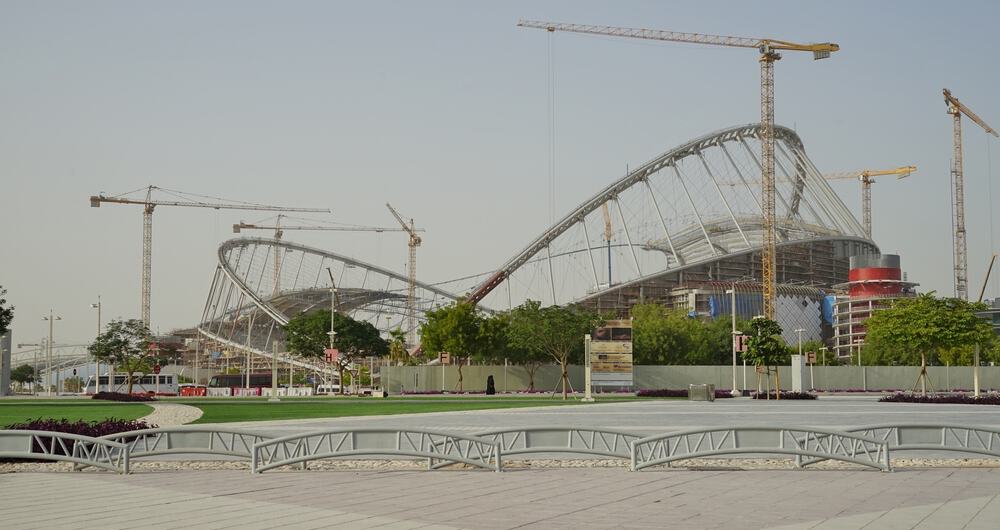Qatar is creating a fully recyclable 2022 World Cup stadium.
The Ras Abu Aboud stadium in Doha will be completely constructed out of shipping containers allowing it to be disassembled after the match and reassembled for use somewhere else in the world. According to Dezeen.com, the stadium will be made of re-purposed steel containers and “each will be modified to contain elements of the 40,000-seat stadium, including removable seats, concession stands, and bathrooms.”
The brainchild of Fenwick Iribarren Architects, the project’s main goal is reusability and sustainability. In a recent Al Jazeera article, the Ras Abu Aboud Stadium project manager, Mohammed Al Mulla, states that “from the very early states in the design, [they] have considered how every single component of the stadium can be reused, whether it’s the container or the steel structure that will hold the containers and the roof as well.”
The use of modified shipping containers greatly reduces the cost of required building materials while simultaneously rendering less waste and reducing the structure’s carbon footprint. Because all of the infrastructure for the World Cup must meet Global Sustainability Assessment System (GSAS) standards, it promotes selected countries to come up with innovative new ideas in terms of sustainability.
But the project is not just environmentally sustainable, it is also logistics friendly.
The containers to be used can be easily transported thus making them more efficient and cost effective. Traditional stadiums, especially those built specifically for the FIFA World Cup, are usually high-cost, time-sensitive OOG and Project Cargo shipments due to the strict time frame and small scheduling windows; as well as the often large, oddly shaped materials required. Project Cargo and OOG shipments often move on short-term rate agreements and spot quotes given their unique nature. Each shipment must be checked, rated, confirmed, and monitored on a case-by-case basis; whereas a simple shipment of standard dry containers requires much less attention at a much lower rate.
The icing on the cake is that the building materials are literally being moved inside of other building materials (i.e. the containers that will be used as building blocks, which fit comfortably stacked on containerships coming from suppliers all over the world).
The state-of-the-art stadium is already underway having recently received a shipment of over 90 containers imported from China. The stadium will require a total of 1,000 containers.
Projected to be completed in 2020, The Ras Abu Aboud Stadium venue will be located on the waterfront of the West Bay area downtown and is one of eight proposed venues for the upcoming games.
The project is nothing short of genius and we hope to see it in person in Qatar at the 2022 FIFA World Cup!




